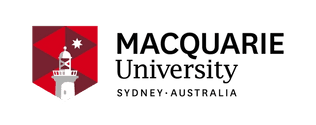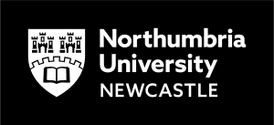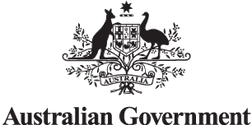Frequently asked questions
Some answers to our most frequently asked questions
General Questions
How do I get involved?
Participating in VegeSafe (soil; Australia) or DustSafe (vacuum dust; global) is easy!
Complete the registration survey (VegeSafe / DustSafe) to get started. You'll then be emailed instructions on how to collect and send in your samples.
If you want to send soil and vacuum dust, you'll need to complete both registration surveys.
How long does it take to get my results?
We strive to return your results to via email in 3 - 5 weeks. However, we can often be busy with other research duties, like fieldwork, conferences and teaching.
If you are concerned that you have not recieved your results please check your junk folder, or contact us.
Are my results normal?
The results from your home and garden will be emailed to you, along with guideline concentrations for comparison. More information can be found on the Interpreting your results page.
You can also compare your results to others on our global map: Map My Environment. Toggle between soil and dust, zoom to your neighbourhood and learn more about what's in your environment.
Do you test for other contaminants?
VegeSafe and DustSafe test for a suite of 8 trace metals in soil and vacuum dust: arsenic (As); cadmium (Cd), chromium (Cr), copper (Cu), manganese (Mn), lead (Pb), nickel (Ni), zinc (Zn).
There may be other contaminants in your home or garden. An environmental consultant or NATA accredited laboratory (Australia) will be able to assist you with analysis of other contaminants.
VegeSafe
What is VegeSafe?
VegeSafe is a community science program run by Environmental Science staff at Macquarie University. Since 2013, we have sought to inform community about metal and metalloid contaminants in their garden soil through our soil testing program.
By participating, you will receive a formal report containing the results of the following trace metals in your soil: arsenic (As); cadmium (Cd), chromium (Cr), copper (Cu), manganese (Mn), lead (Pb), nickel (Ni), zinc (Zn).
We accept soil samples from all Australian states and territories. Due to quarantine regulations we cannot accept soils from overseas.
What does my donation support?
For 6 years VegeSafe has been operating as a service to all Australians. In order to keep the program running and accessible to all, we ask for a small donation, starting at $20.
A donation of $20 directly supports the staff time and laboratory consumables required to conduct your soil analysis.
You can make a donation to VegeSafe here.
What is a dripline?
We ask that you collect soil samples from your: front yard, back yard, veggie patch (2 samples) and dripline.
The dripline is under the edge of your roof line, where you might expect runoff to drip or accumulate. The dripline is an important sample as it can capture common sources of contamination such as lead paint from exterior walls and dust that originated from your roof.
DustSafe
What is DustSafe?
DustSafe is a global citizen science initiative that offers testing of household vacuum dust for trace metals and metalloids.
After sending your vacuum dust to DustSafe you will receive a formal report explaining the concentrations of eight trace metals in your dust: arsenic (As); cadmium (Cd), chromium (Cr), copper (Cu), manganese (Mn), lead (Pb), nickel (Ni), zinc (Zn) along with information on regionally relevant comparative guidelines and advice on how to reduce your exposure risk.
Our primary testing facilities are in:
Australia (Macquarie University)
England (Northumbria University)
New Zealand (University of Auckland / GNS)
United States of America (Indiana University-Purdue University Indianapolis).
Participants from these locations can get involved by completing the registration survey here.
We have collaborated with researchers from China, Greece, Ghana, Mexico, New Caledonia, New Zealand and Nigeria. You can view the results from these collaborative efforts on our MapMyEnvironment global map.
What does my donation cover?
We aim to be operated “by the people – for the people”. We ask that you consider making a donation to the program, starting from $20.
This $20 donation assists with the cost of staff time and laboratory consumables required to analyse one vacuum dust sample from your home.
You can support DustSafe by making a donation here.
How much dust should I send?
Once you have registered, you will be emailed instructions on how to collect your sample and where to post it.
Please fill up a plastic resealable bag (sandwich bag or similar) with dust from your vacuum cleaner.
Your sample will be sieved to remove large items (like hair, glitter and Lego pieces), and we analyse the fine fraction that is less than 250 microns in diameter.
We need a full bag of dust to be able to extract enough fine dust for analysis. The more dust, the better!
GardenSafe
What is GardenSafe?
GardenSafe is the Victorian chapter of VegeSafe, run by the Citizen Science team at the Environment Protection Authority (EPA), Victoria.
GardenSafe extends on what VegeSafe offers, providing testing of trace elements and soil quality indicators like soil composition, texture and organic carbon content.
If you live in Victoria and would like to participate please complete the registration survey to get started.
Who can participate in GardenSafe?
EPA Victoria's GardenSafe program accepts samples from residential properties in Victoria, Australia.
How many samples can I send to GardenSafe?
GardenSafe offers testing of 3 garden soil samples. If more samples are sent, only 3 will be tested. We request that one sample is collected from your front yard, back yard and veggie patch, as specified in the soil sampling instructions.




ABOUT US
The 360 Dust Analysis program is a global research initiative to collect and analyse data on contaminants of concern that may be harmful to human health in homes and gardens..
CONTACT US
dustsafe@mq.edu.au
gardensafe@epa.vic.gov.au
ee.dustsafe@northumbria.ac.uk
LOCATIONS
Macquarie University, NSW, Australia.
Environment Protection Authority, VIC, Australia.
Northumbria University, Newcastle, United Kingdom.
IUPUI, Indianapolis, United States.